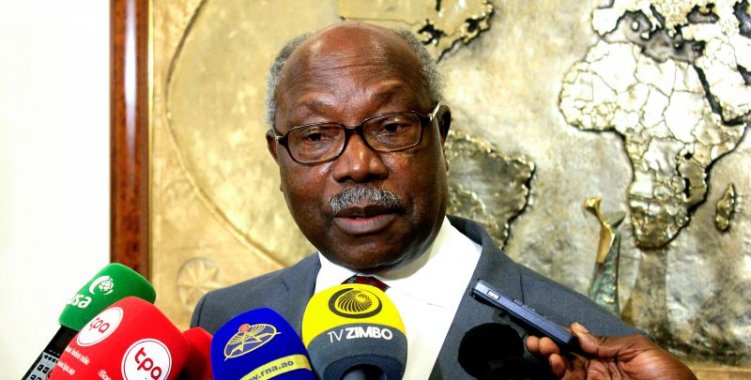"I think the idea is good, in democracies coalitions also make democracy grow and then our model will demand that opposition parties unite and have a common project on this issue of elections," said the president of the National Front for the Liberation of Angola (FNLA), Lucas Ngonda, this Tuesday to Lusa.
The politician Abel Chivukuvuku expressed his willingness, on Friday, to participate in the next general elections of Angola, in 2022, in a possible coalition of opposition parties, an issue defended by a political and civil society current.
Abel Chivukuvuku, who fights for the legalization of his new political project, called PRA-JA Servir Angola, stressed that the issue "is still a very incipient discourse and debate" and "not deepened".
"There are voices and, obviously, there are different attitudes, because the parties themselves also have various forces within the political forces according to the democratic space and complementarity that exists, but I think it is good that in Angola this debate arises, which should be nurtured, but in a structured, deep, well thought out, why not? In 2020 there will be only the MPLA and the Union of the Peoples of Angola", he said during a virtual round table.
This Tuesday, the president of the FNLA said he agreed with the idea of Chivukuvuku, affirming that only with a common project it will be possible to "face the situation" of "a parliamentary dictatorship imposed by the Popular Movement for the Liberation of Angola".
For Lucas Ngonda, the MPLA should always continue with the qualified majorities, "achieved by various frauds contested by us", and this should prevail because the Angolan system that "is neither viable nor democratic".
"It is a single-party democracy that has opened the doors for the other parties and that is the Angolan model, it is not pluralist democracy that demands alternation, and the way the system is, if we do nothing, we will certainly have problems in consolidating Angolan democracy," he noted.
The need for a coalition of opposition parties for the 2022 general elections is also advocated by the Social Renewal Party (PRS), whose success depends on the "independence" of the Constitutional Court (TC) and the National Electoral Commission (CNE).
According to PRS president Benedito Daniel, the coalition of parties are "innovative ideas," but Angola's "big problem" lies in the institutions that validate the elections, namely the TC and the CNE, which are "fundamental for the smoothness of the process.
"The parties could join, but until the CNE is changed and the Constitutional is not independent, the situation will be the same," he said, adding that voters vote, but "in the offices" they will "present contrary data, and that is where the problem lies.
The National Union for the Total Independence of Angola (UNITA), which said it was leading a "broad movement for change," considered that "it is still early" for the approach on coalition of parties, pointing out the autarchic as the initial goal.
UNITA Secretary General Álvaro Chicuamanga said his party still does not have an official position on the prospect of a coalition of opposition parties, aiming at the 2022 elections, but said the "debate must be set in motion.
"The will for change is enormous, now to talk about coalitions of parties I think it's still early, there are burning issues that still have to be resolved, fundamentally that has to do with the municipal elections, which were practically relegated to the background without a public explanation from the government," he stressed.
In statements to Lusa, the UNITA politician considered it normal for the debate to arise, but stressed: "We still need to bring the issue of municipalities to the table at that moment, this is a priority and after that we will evolve towards general elections".
"I think that if we go to work for the general elections without looking at the municipalities we will be burning a very important stage," he concluded.
The next general elections in Angola are scheduled for 2022, with the first local elections scheduled for this year.







